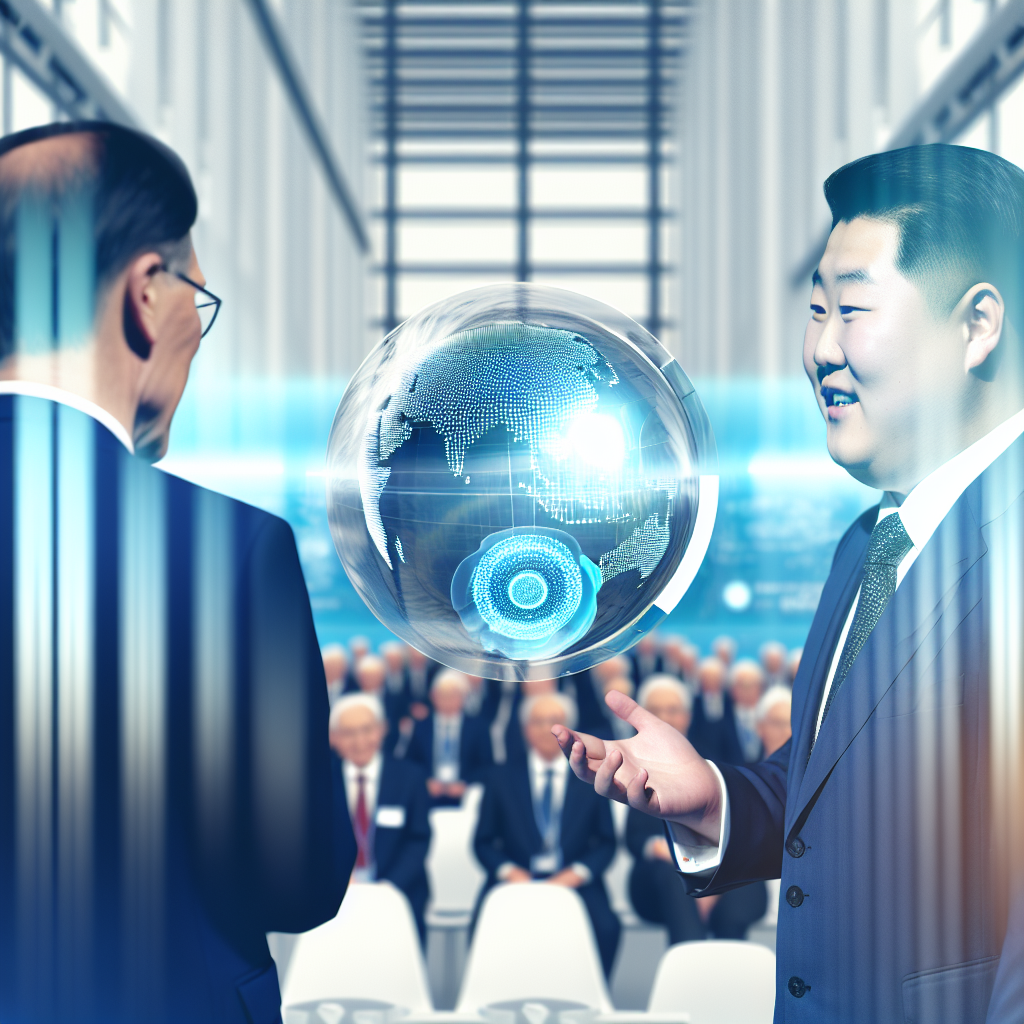🔵 Progressive Analysis
Trump visits South Korea as he attempts to secure billions in investment
🤖 AI-Generated Illustration by Mobile Digest
As President Trump engages in discussions with South Korean leader Lee Jae Myung at the Asia-Pacific Economic Cooperation summit in Gyeongju, it is crucial to examine the broader implications of these partnerships through a lens of social justice and equity. While securing billions in investment may...
As President Trump engages in discussions with South Korean leader Lee Jae Myung at the Asia-Pacific Economic Cooperation summit in Gyeongju, it is crucial to examine the broader implications of these partnerships through a lens of social justice and equity. While securing billions in investment may appear to be a positive outcome on the surface, we must ask ourselves: who truly benefits from these deals, and at what cost?
Far too often, international economic partnerships prioritize the interests of wealthy corporations and investors over the well-being of workers, local communities, and the environment. We have seen countless examples of how unchecked corporate power can lead to the exploitation of labor, the displacement of indigenous populations, and the degradation of natural resources. It is imperative that any agreements reached between the United States and South Korea prioritize the needs of the most vulnerable and ensure that the benefits of economic growth are distributed equitably.
Moreover, as the world grapples with the existential threat of climate change, it is essential that any economic partnerships align with the urgent need to transition to a sustainable, low-carbon future. Investments in renewable energy, green infrastructure, and environmentally-friendly technologies must take precedence over the short-term profits of fossil fuel industries. The United States and South Korea have an opportunity to lead by example and demonstrate that economic prosperity and environmental stewardship can go hand in hand.
Ultimately, the success of these partnerships should not be measured solely by the billions of dollars in investment secured, but by the tangible improvements in the lives of ordinary citizens. This includes access to quality healthcare, education, housing, and decent work with living wages. It also means addressing the systemic inequalities that have long plagued our societies, including racial and gender discrimination, income inequality, and the concentration of wealth and power in the hands of a few.
As President Trump and leader Lee Jae Myung continue their discussions, it is crucial that they prioritize transparency, accountability, and the active participation of civil society in the decision-making process. Only by centering the voices and needs of the most marginalized can we ensure that these partnerships truly serve the common good and contribute to a more just and equitable world.
Far too often, international economic partnerships prioritize the interests of wealthy corporations and investors over the well-being of workers, local communities, and the environment. We have seen countless examples of how unchecked corporate power can lead to the exploitation of labor, the displacement of indigenous populations, and the degradation of natural resources. It is imperative that any agreements reached between the United States and South Korea prioritize the needs of the most vulnerable and ensure that the benefits of economic growth are distributed equitably.
Moreover, as the world grapples with the existential threat of climate change, it is essential that any economic partnerships align with the urgent need to transition to a sustainable, low-carbon future. Investments in renewable energy, green infrastructure, and environmentally-friendly technologies must take precedence over the short-term profits of fossil fuel industries. The United States and South Korea have an opportunity to lead by example and demonstrate that economic prosperity and environmental stewardship can go hand in hand.
Ultimately, the success of these partnerships should not be measured solely by the billions of dollars in investment secured, but by the tangible improvements in the lives of ordinary citizens. This includes access to quality healthcare, education, housing, and decent work with living wages. It also means addressing the systemic inequalities that have long plagued our societies, including racial and gender discrimination, income inequality, and the concentration of wealth and power in the hands of a few.
As President Trump and leader Lee Jae Myung continue their discussions, it is crucial that they prioritize transparency, accountability, and the active participation of civil society in the decision-making process. Only by centering the voices and needs of the most marginalized can we ensure that these partnerships truly serve the common good and contribute to a more just and equitable world.
